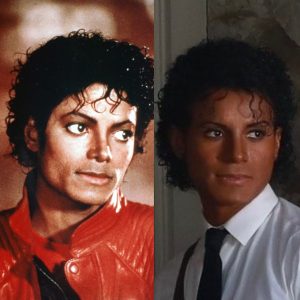With David Tennant preparing to reprise the role of The Doctor for Doctor Who’s 60th anniversary, let us examine why the Scotsman is the best Doctor.
A fan favourite
Tennant topped a Radio Times poll of favourite Doctors as recently as September 2020. In a 2006 Doctor Who Magazine poll, he beat Tom Baker, and Digital Spy readers voted him the best TV character of the twenty-first century.
Also read: David Tennant-Catherine Tate duo return for Doctor Who’s 60th anniversary
He was the Doctor during one of Doctor Who’s critical and commercial high points, with consistently strong ratings and a Christmas day viewership of 13.31 million for ‘Voyage of the Damned’ and 12.27 million for his farewell episode, ‘The End of Time – Part Two’. He is the only other Doctor that rivals Tom Baker in terms of related iconography, even appearing in the BBC One Christmas idents when his farewell episodes aired.
Simply put, the Tenth Doctor is ‘My Doctor.’
Tennant’s Doctor is described as ‘amiable’ in articles accompanying these fan surveys, in contrast to his predecessor Christopher Eccleston’s grim take on the character. Ten is the Doctor you’d want to bring onboard the TARDIS because he’s ‘down-to-earth,’ ‘romantic,’ ‘sweeter,’ and ‘more light-hearted.’
His ego
That’s intriguing in some ways because the Tenth Doctor is a Jekyll and Hyde character. He’s attractive and personable, and travelling with him can be addictively enjoyable, but he’s also carelessly rude, sharply contemptuous, and self-aware. His ego wants to be nourished, and once fed, it may be harmful.
The character’s tension is not the result of poor writing or acting. On the opposite. The majority of doctors behave in an unpleasant manner. Since the First Doctor kidnapped Ian and Barbara, the character has been evolving away from the entitled snob we encountered him as, but he will never be fully free of it.
Also read: You can see The Doctor now: Best moments of David Tennant in Doctor Who
Six and Twelve were both written to be quite abrasive at first, then to soften over time (with Colin Baker having to do this through Big Finish audio plays rather than on telly). The main distinction between Twelve and Ten is that Twelve questions himself more. Until the very end, Ten appears to believe his own potential.
From his first full appearance in 2005’s ‘The Christmas Invasion,’ the Tenth Doctor’s duality is clear. He appears to be the picture of bonhomie, that lighter and charming character shining through, having cited The Lion King and bravely ambled into the Sycorax ship in a dressing gown. Then he murders their commander.
True, it was in self-defense, but it was a lethal force that was possibly unnecessary. Then he deposes the British Prime Minister for a comparable act of aggression. We can immediately observe the Tenth Doctor’s proclivity for violence and moral ambiguity. He’s still the same guy who thought about braining someone with a rock in ‘An Unearthly Child.’
By series 4, the Doctor has matured further, highlighting the weaknesses of the Tenth Doctor. Donna (played by Catherine Tate) is now travelling with him and criticises his behaviour more than Rose or Martha did. Despite this, the Doctor continues, and in ‘Midnight,’ we see him driven to desperate and ugly pleadings about how intelligent he is when put in a situation he can’t talk himself out of.
His duality
What’s remarkable here is that, while presenting himself as “a man who never would,” the Doctor is actually a man who would do anything. We’ve seen him do it before. Even the Tenth Doctor, eager to live up to the absolute moral standards he espouses, slaughtered the Sycorax leader and the Krillitanes, drove the Cybermen to despair, took the Family of Blood to a peaceful village, and then personally disposed of them.
Also read: Billboard Music Awards 2022: Full list of winners
But Tennant plays this as something the Doctor really believes in that moment, that he is a man who would not kill even as his daughter lies dead. That’s why his picking up a gun in ‘The End of Time’ has such a powerful impact. And it’s understandable that the Tenth Doctor would reject violence after a predecessor who regenerated after refusing to commit another double-genocide.
Davros accuses the Doctor of turning his allies into weapons in the series finale ‘Journey’s End.’ This is because the Doctor’s friends used weapons against the Daleks, who are going to slaughter everyone in the universe – and I cannot emphasise this enough, fighting back against them sounds reasonable. And I cannot emphasise this enough yet again, it is because the Daleks are evil. I mean, really horrible.
You won’t believe how ridiculously terrible they are. By this point, the Doctor has attempted to destroy them several times. There is no complication of double-genocide here, only the very real possibility of total annihilation of the cosmos. This charge that the Doctor transforms humans into weapons should never be made.
And yet, it does with the Tenth Doctor. This marks a significant difference between him and the First Doctor, who had to persuade pacifists to fight alongside him in ‘The Daleks.’
The passion
Martha (played by Freema Agyeman) compares the Doctor to fire in ‘The Sontaran Strategem.’ It’s so simple that it almost doesn’t seem worth stating, but it’s the ideal parallel (especially for a show where fire is a huge part of the very first story).
Also read: BBMA 2022: BTS scripts history, Olivia Rodrigo,Ye tied at 6
Yes, fire shines in dark areas and can be a beacon, but despite the fact that it is the entire thing, people can forget that it burns. And fire is associated with the tale of being stolen from the gods and brought to humanity. The Time Lord Victorious theme is ideal for the Tenth Doctor. He is the most willing of the Doctors to accept himself as a semi-mythic character.
Even when regenerating, there is a balance between hero and legend: the Tenth Doctor eventually saves Wilfred Mott, but only after emphasising how great a sacrifice he is making. Then he goes to collect his reward by meeting all of his pals, only to stare at them from afar.
His final words are ‘I don’t want to go,’ which works beautifully as well as clearly being a sad moment for the actor, but in the context of Doctor Who as a whole, it makes Ten an outlier: no one else went this unwillingly. Despite this, Russell T. Davies stated in interviews that it was necessary to end the story with “the Doctor as people have loved him: funny, the bright spark, the hero, the enthusiast.”
Also read: ‘We’re talking solidarity…you’re talking dolly shots’: Cannes amid unrest
They embark on remarkable travels only to get somewhere that makes them less than who they want to be, with Russell T. Davies is more brutally honest than Steven Moffat, who almost always chooses the romantic option. Davies recently told Mark Lawson that he likes writing happy endings “because in the real world they don’t exist,” but his endings are bittersweet: Mickey and Martha end up together, but it feels like they’re leftovers from the Doctor and Rose’s relationship. The Tenth Doctor does not, like the Ninth, leave with a smile but tears in his eyes.
The fact that the Tenth Doctor has this light and shade is a credit to how brilliantly crafted the character is, and with David Tennant’s incredible likeability, he can appeal to a wider audience as a result.





